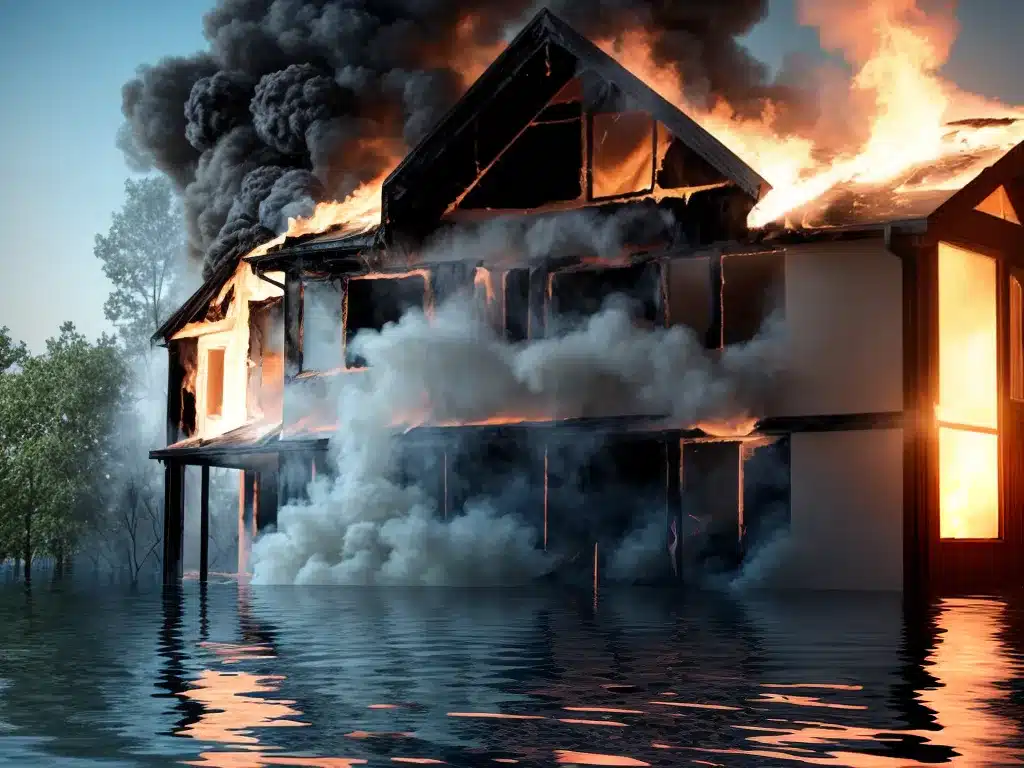Assessing the Damage
When flood or fire damage occurs in a home or business, a thorough damage assessment is the first critical step. It is important to bring in professional restoration experts to conduct a detailed inspection and determine the full extent of the damage.
Some key things the experts will evaluate include:
-
Extent of water damage from floods. They will check for standing water, water stains, warped floors or walls, mold, etc.
-
Severity of smoke and fire damage. They will check for smoke residue, charring, collapsed walls/ceilings, etc.
-
Structural integrity. They determine if the flooding or fire has compromised the structural stability of the building.
-
Salvageability of belongings. Restoration pros assess what personal belongings, furniture, and other contents may be salvageable.
Drying Out Process
For flood damage, the drying out process is critical to avoid mold growth. Professional dryers and dehumidifiers are used to fully dry all flooded areas. Depending on factors like the extent of flooding, drying can take several days to over a week.
With fire damage, porous materials like carpets, walls, and upholstered furniture will need drying and odor treatment to remove the permeated smell of smoke. The goal is to extract all smoke residue and smell from the property.
Sanitizing and Disinfecting
After drying, disinfectants are applied throughout the property. Floods often carry sewage contamination. Fires leave behind toxic soot and chemicals. Thorough sanitizing and disinfecting removes bacteria and ensures the property is safe for occupancy again.
For floods, anti-microbial treatments are also applied to inhibit mold growth. All HVAC systems are professionally cleaned as well.
Structural Repairs
Any structural damage from the flood waters or fire must be repaired. This may involve:
-
Replacing warped, burnt, or moisture-damaged walls/floors
-
Repairing compromised framing, ceilings, and roofs
-
Remediating foundations if destabilized by flooding
-
Electrical/plumbing repairs. Floods and fires often damage electrical systems and plumbing.
Licensed contractors handle all structural repairs to restore the property to a livable condition.
Restoring Belongings
There are restoration techniques for cleaning smoke damage and removing foul odors from personal belongings like:
-
Clothes – can be laundered and deodorized
-
Upholstered furniture – ozone treatment, odor encapsulation
-
Wood furniture – cleaning, light sanding, re-staining/resealing
-
Artwork, books, etc. – gentle restoration cleaning methods
For badly damaged items beyond repair, the insurance claim will include replacement value compensation.
The Drying Process
Here are some key phases of the structural drying process after water or fire damage:
Initial Drying
- Remove standing water (for floods)
- Open up the building, increase air circulation
- Use dehumidifiers, blowers, and dryers placed throughout
Monitoring and Control
- Measure and monitor humidity and moisture levels
- Adjust equipment as needed to facilitate drying
Final Drying Phase
- Verify all materials are dried to acceptable moisture levels
- Wall cavities, insulation, and other hidden spaces checked
Monitoring and Preventing Mold
Since mold thrives in moist environments, it is critical to prevent mold growth after water damage.
- During the drying process, monitor humidity levels and surface moisture.
- Apply anti-microbial treatments to inhibit mold.
- Address any signs of mold immediately.
- After drying, maintain low indoor humidity going forward.
- Schedule professional mold inspections.
Quick action is key to dry out the structure and belongings before mold takes hold.
Hiring Reputable Restoration Contractors
It is important to only hire contractors with extensive flood and fire restoration experience, proper licensing and certifications, and good reviews.
Things to look for:
-
Good standing with organizations like the Restoration Industry Association (RIA)
-
Proper licensing and insurance. Make sure they carry liability and workers comp coverage.
-
Experience. Ask about their experience handling flood and fire damage projects.
-
References. Reputable contractors should provide client references upon request.
Taking the time to find qualified, professional disaster restoration contractors pays off through superior results and peace of mind.







